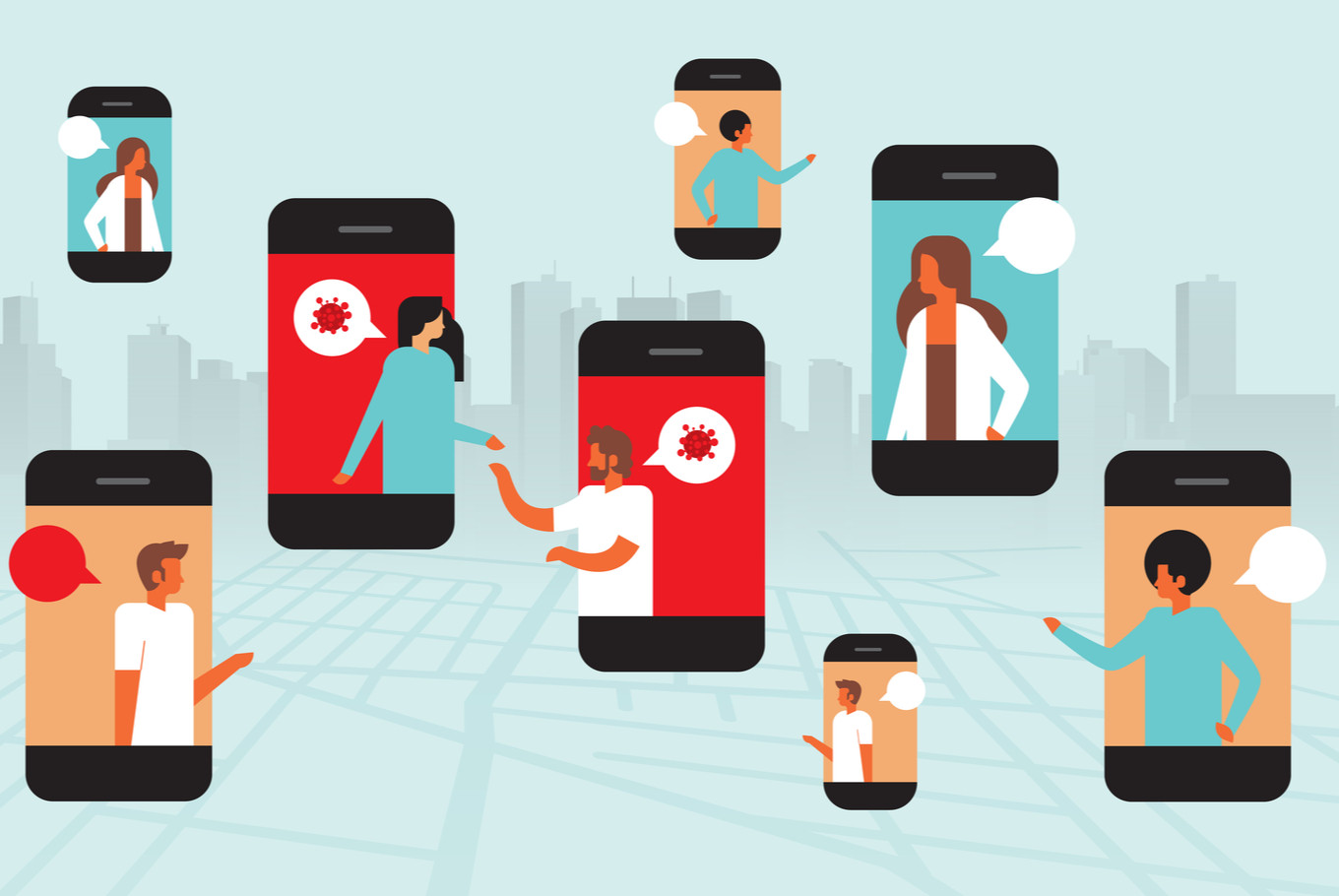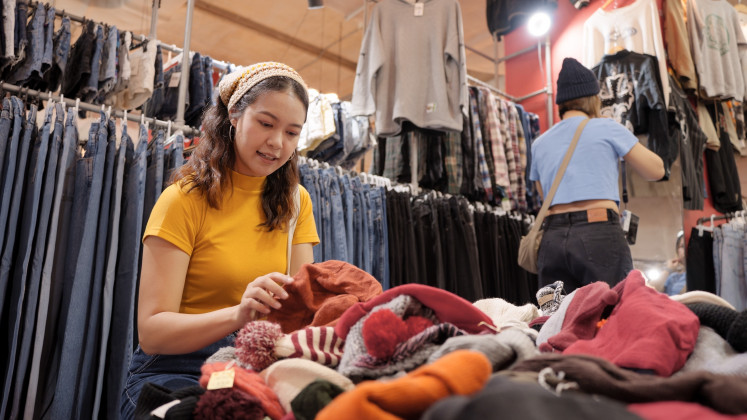Popular Reads
Top Results
Can't find what you're looking for?
View all search resultsPopular Reads
Top Results
Can't find what you're looking for?
View all search resultsSaving lives and the economy using technology amid COVID-19 pandemic
Digital technology serves as one part of the overall solution, however, there are some controversial challenges to using technology during the COVID-19 pandemic.
Change text size
Gift Premium Articles
to Anyone
A
mid the COVID-19 pandemic, tens of millions of people have lost their jobs globally over the past few months. The economic consequences have been devastating. The International Monetary Fund (IMF) has recently updated its economic forecasts again and warned that the economy will deteriorate significantly during the pandemic.
Governments need to contain the spread as soon as possible so we can go back to managing the economy effectively and businesses can return to operating at full speed. Meanwhile, we want to stay healthy and safe for ourselves, our friends and family.
Beyond physical safety, the importance of reviving the economy is also of critical importance.
Digital technology serves as one part of the overall solution, however, there are some controversial challenges to using technology during the COVID-19 pandemic:
- Safety vs privacy: How do we find the right balance between safety and respecting everyone’s privacy?
- Health or business first?: On the one hand, staying in lockdown too long will damage the economy, which might lead to social unrest and violence. On the other hand, it is dangerous and irresponsible if businesses open without taking the necessary precautions to protect their employees, partners and customers.
- Cost: This pandemic has led to reduced budgets, layoffs and even bankruptcies. Spending has slowed down significantly. How can we find a cost-effective solution that scales nationally? Who will pay for it? Government? Businesses? Citizens?
- Time: Every day counts because COVID-19 is a highly contagious disease. We have to act swiftly to contain it.
Short-term solutions
Singapore has implemented SafeEntry, which is a national digital check-in system that logs the identity and mobile numbers of individuals visiting hotspots, workplaces of essential services, as well as selected public venues to prevent and control the transmission of COVID-19, through contact tracing and identification of COVID-19 clusters.
At least 26 countries have implemented contact-tracing apps using smartphones by leveraging the Global Positioning System (GPS) and Bluetooth technologies.
Additionally, some countries such as Belgium, Bulgaria, Hong Kong, Singapore and South Korea have complemented their smartphone solutions with Internet of Things (IoT) devices in a variety of forms, including wristbands and tokens.
Amazon is testing a wearable device that lights up and beeps when warehouse workers get too close to each other. They also have deployed "distance assistants" to notify warehouse workers if they get too close, using CCTV and computer vision.
The current solutions are not optimal yet. The Bluetooth chips on smartphones are draining battery life quickly. Some of them have outdated operating systems, firmware and hardware. Additionally, many young children and elderly people don’t use smartphones.
Furthermore, we need to provide strong, secure technology to protect user privacy. Equally important, there should be a protocol on how to track and trace when someone has been infected by COVID-19.
Long-term solutions
Given what we know today, below are some potential long-term solutions.
Smartphones have evolved into digital Swiss Army knives due to that large swath of built-in features. GPS, Bluetooth and their advanced software development environment tools are useful for tracking and tracing COVID-19.
Bluetooth Low Energy (BLE) is a great complement to smartphones given its low energy consumption, flexible physical forms, affordability and interoperability with smartphones.
This data needs to be encrypted using military-grade technology to give the best possible privacy protection.
Some technologies like GPS and BLE should be configurable, depending on each company’s policy and government law. Also, the user has to be educated on what data is collected, how it is going to be used and who has access to the data.
CCTV and advanced computer vision can detect crowds, social distancing, people wearing masks, etc. Also, we need to use AI to analyze hundreds of millions of records to provide advanced analytics to advise what actions are needed to track, trace and prevent the spread of COVID-19.
People will leverage the above technologies combined with best-practice protocols to track and trace COVID-19.
At the highest level, we want to both save lives and revive the economy.
We have to set the right mindset. Bill Gates told us “we can’t restart the economy […] and simply ‘ignore that pile of bodies over in the corner’". In other words, we can’t run business-as-usual while our employees, partners and customers are sick and dying. Business continuity and productivity follow after containing COVID-19.
We have to put safety first above politics and profits, and set aside our differences. (kes)
***
On Lee has over 30 years of experience in technology. He has built teams in the United States, Indonesia, China and India and is a board member of several AI start-up companies.












